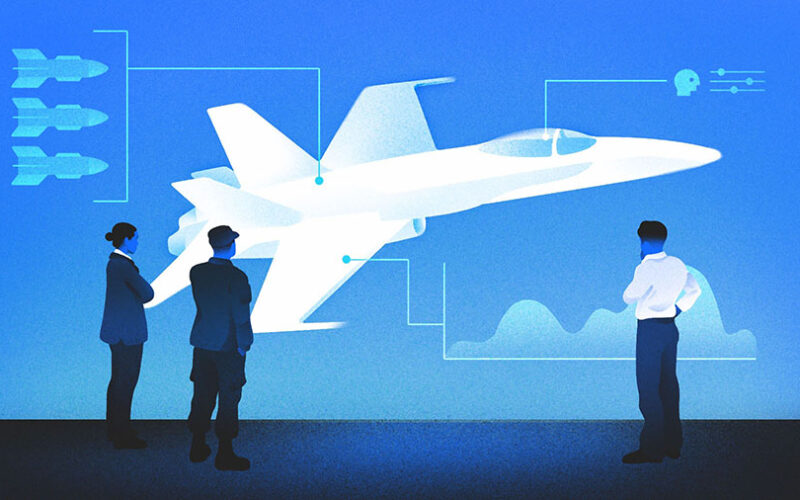Last week, defense and critical infrastructure tech startup Chaos Industries raised $145 million in a Series B — more than doubling its Series A from just last year.
The funding round was just another sign of how defense tech investment has exploded this year. The sector already has taken in more venture dollars than ever before and investment is showing few signs of letting up as defense systems become more dependent on tech, conflicts around the world heat up, and many expect a likely uptick in the Department of Defense’s budget after the recent election.
Through mid-November, defense tech startups — defined as those in the military, national security and law enforcement sectors — have raised just under $3 billion in 85 rounds, per Crunchbase data.
The dollar figure beats out the $2.6 billion raised in 113 rounds for all of 2022, which was the previous high mark for the defense tech industry.
Defense tech gets big (money)
With that venture total, there obviously were some large rounds this year in the sector — including by Anduril Industries, perhaps the poster child for defense tech startups.
In August, the Costa Mesa, California-based startup locked up a $1.5 billion Series F co-led by Founders Fund and Sands Capital Ventures that values the company at $14 billion — a 69% jump from the $8.5 billion valuation it received after its massive $1.5 billion Series E in late 2022. The company will use some of the new proceeds for the development of Arsenal-1 — a more than 5 million-square-foot production space designed to produce tens of thousands of autonomous military systems annually. Earlier this month, it was reported the company is considering building the facility in Arizona, Ohio or Texas.
However, that has been far from the only big round defense startups have seen this year.
In July, Helsing, which develops artificial intelligence software for defense, raised about $489 million in funding led by General Catalyst that values the company at $5.4 billion. The Germany-based startup designs software that helps boost weapons capabilities in drones and jet fighters and improves battlefield decision-making.
Just a week after Helsing’s raise, autonomous surface vessels maker Saronic locked up a $175 million Series B at a $1 billion valuation led by Andreessen Horowitz — minting the defense tech startup as the newest unicorn in the growing sector.
Changing environment
The big rounds and bigger venture totals beg the question: Have VCs’ attitudes changed regarding the sector? In the past, defense tech and the venture and tech cultures have not mixed well, as many investors have shied away from the space for moral reasons or due to pressure from LPs.
However, just as in all things, times change and the venture capital industry has grown significantly even in the past decade. Those investors are looking for more opportunities in more sectors — including defense.
There also is the simple fact that what is called “defense tech” often can also be used or categorized as something else. While some AI and cybersecurity, for example, can be used for defense purposes, it may also be applied to commercial uses in industries like manufacturing or energy. Just this month, the DoD awarded its first-ever generative AI defense contract to AI-powered threat detection tool startup Jericho Security.
Speaking of the DoD, with Republicans now in control of the White House and Congress, many expect the defense budget to grow — although there is some doubt because of uncertainty as to how much military aid the U.S. may give to some allies.
Any increase in the defense budget could mean more contracts for startups and, at the very least, a larger budget size makes the space more enticing to investors.
Thus far, firms such as Andreessen Horowitz, Alumni Ventures and 8VC 1 all have shown significant appetite in defense tech with all making at least a dozen investments in the space since 2021, per Crunchbase data. Others, including Founders Fund, Sands Capital Ventures, General Catalyst, Valor Equity Partners and Thomas Tull’s US Innovative Technology Fund have led or co-led big rounds in the space.
It seems like a safe bet to see many of those names go further on the offensive when it comes to investing in defense tech.
Related Crunchbase Pro list:
Methodology
Defense tech is defined by the industries of military, national security and law enforcement, according to Crunchbase data. Most announced rounds are represented in the database; however, there could be a small time lag for rounds reported late in the quarter. It does not include incubators or accelerators due to the fluctuations their investment numbers can have.
Related reading:
Illustration: Dom Guzman
Stay up to date with recent funding rounds, acquisitions, and more with the
Crunchbase Daily.
Source link
lol

